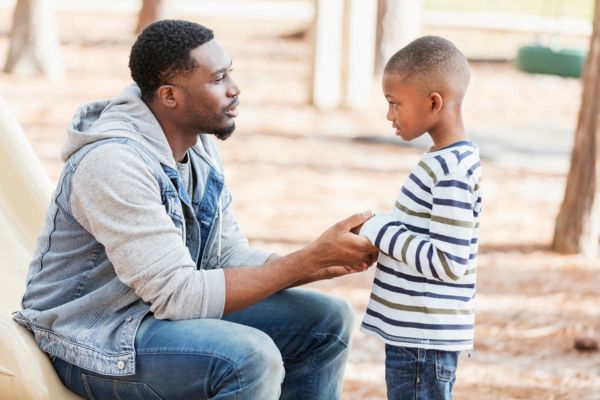
It’s our job as caregivers to teach our kids the skills they need to navigate all the different situations life presents. We do this in lots of ways, one of the most important and simplest is talking to them. Not all conversations are impactful, many are just part of the daily business of being together. However, many of the conversations we have with kids impact the way they feel, think and grow. Are we making the most of them? Are we lecturing or skill-building? Here are three questions to give us some insight.
1. Is your conversation focused on judgment?
Usually, when we fall into lecture mode it’s because we’ve fallen into judgment over the child’s behavior, thinking, or motivations. It’s easy to do; we get annoyed, frustrated, impatient, or afraid it’s all too much. We become fully invested in getting the child to see things our way: getting them to see why their choices aren’t good choices. Unfortunately, when we go into lecture mode, we lose our ability to help them learn how to effectively problem solve.
2. Is your conversation based on your feelings or the child’s feelings?
Lecturing is all about how we feel about the expectations, limits, and boundaries we have for the child and their inability to fit into them. Problem-solving is all about how the child feels about those things, the challenges they have when trying to fit into them, and finding alternative ways to meet the big picture goals.
3. How does the child feel about the conversation?
Lecturing is disempowering and usually leaves the child feeling wrong, ashamed, defeated, angry, and a host of other unhelpful emotions. Problem-solving is empowering and usually leaves the child feeling supported, hopeful, curious and competent.
It takes a lot of self-awareness and intentionality to move past the lecture and focus on helping our kids build the myriad of skills they need to be happy, healthy little people. Part of our skill building as caregivers.